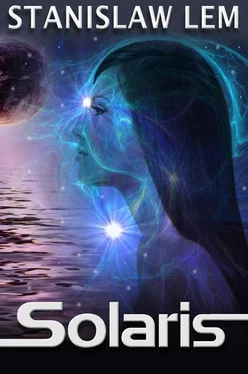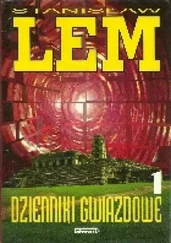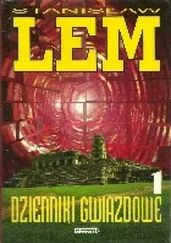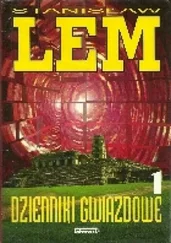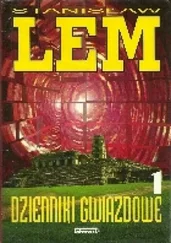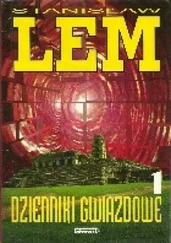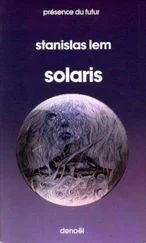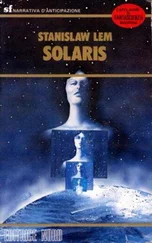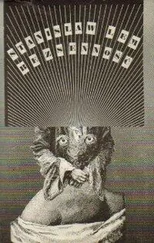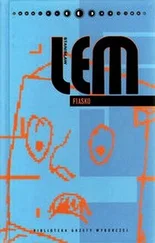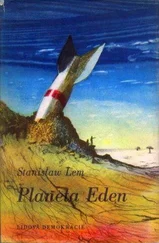“Listen,” Snaut said unexpectedly. “For the moment it’s just me…” He turned around and rubbed his hands nervously. “You’ll have to be content with my company. For now. Call me Rat. You only know me from photographs, but it doesn’t matter, everyone uses that name. Nothing to be done about it, I’m afraid. Besides, when you have parents with such cosmic aspirations as mine, even Rat starts to sound OK…”
“Where’s Gibarian?” I asked again insistently. He blinked.
“I’m sorry I greeted you like that. It’s… not entirely my fault. I’d completely forgotten, there’s been a lot going on here, you know…”
“All right,” I replied. “Never mind that. So what’s with Gibarian? Is he not on the Station? Did he fly somewhere?”
“No,” came the answer. He looked into the corner of the cabin, which was hidden behind a pile of coiled cables. “He didn’t fly anywhere. And he’s not going to. Precisely because of that… among other things…”
“What?” I asked. My ears were still blocked and I had the feeling I wasn’t hearing right. “What’s that supposed to mean? Where is he?”
“Come on, you know,” he said in a completely different tone of voice. He looked me in the eye so coldly it gave me gooseflesh. He may have been drunk, but he knew what he was saying.
“Surely he’s not…?”
“Yes.”
“An accident?”
He nodded. He wasn’t just confirming, he was also sanctioning my reaction.
“When?”
“Today, at dawn.”
Strange to relate, I didn’t feel shock. This entire short exchange of monosyllabic question and answer rather calmed me by its matter-of-factness. I felt I now understood his previously unaccountable behavior.
“How?”
“Go get changed, settle in and come back here in, let’s say, an hour.”
I hesitated a moment.
“Fine.”
“Wait,” he said, as I was turning to the door. He gave me a peculiar look. I could see that what he wanted to say stuck in his throat.
“There were three of us and now, with you, there are three again. Do you know Sartorius?”
“Like I know you, from pictures.”
“He’s in the lab upstairs. I doubt he’ll come out before nightfall, but… in any case you’ll recognize him. If you should see anyone else, you understand, not me or Sartorius, you understand, then…”
“Then what?”
I wasn’t sure if I was dreaming. Against the background of the black waves glinting bloodily in the low sun, he sat back in the armchair, his head drooping as before, and stared to the side, at the reels of cable.
“Then… don’t do anything.”
“Who might I see? A ghost?” I exclaimed.
“I get it. You think I’ve gone crazy. No. I haven’t gone crazy. I don’t know any other way to tell you… for the moment. Besides… maybe nothing’ll happen. In any case, remember. You’ve been warned.”
“About what?! What are you on about?”
“Stay calm,” he persisted. “Act as if… Be prepared for anything. That’s impossible, I know. But try anyhow. It’s the only way. I don’t know any other.”
“But WHAT am I going to see!!” I almost shouted. I barely kept myself from grabbing him by the shoulders and giving him a good shake as he sat there staring into the corner, with his tired sunburned face, every word he uttered costing a visible effort.
“I don’t know. In a certain sense it depends on you.”
“Hallucinations?”
“No. It’s — real. Don’t… attack. Remember.”
“What are you talking about?” I said in a voice not my own.
“We’re not on Earth.”
“Polytheria? But they don’t look anything like humans!” I burst out. I didn’t know what to do to make him snap out of his trance, in which he seemed to be reading something so senseless it chilled the blood in his veins.
“That’s exactly why it’s so terrible,” he said quietly. “Remember: be on your guard!”
“What happened to Gibarian?”
He didn’t answer.
“What’s Sartorius doing?”
“Come back in an hour.”
I turned and left. As I opened the door I looked at him one more time. He sat with his face in his hands, small, shrunken, in stained pants. It was only now that I noticed he had dried blood on the knuckles of both hands.
The tubular corridor was empty. I stood for a moment at the closed door, listening. The walls must have been thin, from outside there came the whining of the wind. On the door there was a crooked rectangle of first-aid plaster that had been stuck up carelessly, bearing the inscription: “Human.” I stared at the scrawled, barely legible word. For a moment I thought about going back to Snaut, but I realized that wasn’t possible.
His demented warning still rang in my ears. I moved off, and my shoulders were bowed by the bothersome weight of the space suit. Quietly, as if hiding from an unseen observer, I returned to the circular hall with the five doors. They bore nameplates: Dr. Gibarian, Dr. Snaut, Dr. Sartorius. On the fourth there was no name. I hesitated, then pressed down lightly on the handle and slowly pushed. As it opened I had the feeling, bordering on certainty, that someone was there. I went inside.
There was no one. An identical convex window, though slightly smaller, looked out onto the ocean, which from here, against the sun, shone greasily, as if reddened olive oil were dripping from the crests of the waves. The crimson glow filled the entire room, which was like a spaceship cabin. On one side there were shelves with books and other items, a bunk strapped to the wall and secured with universal joints; on the other were numerous cabinets, between which were aerial photographs stuck together in nickel-plated frames. In metal holders there were flasks and test tubes stopped with cotton wool. By the window were two rows of white enamel cases so close together there was hardly room to squeeze through. The lids of some of them were half-open; they were full of different kinds of tools and plastic hoses. In both corners there were faucets, a smoke extractor, freezers; a microscope stood on the floor, since there was no longer any room for it on the large table next to the window. When I turned around, right by the door I saw an open locker as high as the ceiling filled with overalls, work wear and protective aprons; there was underwear on the shelves, and among the anti-radiation boots was the glint of aluminum flasks for use with portable oxygen packs. Two packs complete with masks hung from the rail of the raised bed. Everywhere there was the same disarray, which had been only hurriedly and superficially tidied. I sniffed the air testingly and smelled a faint aroma of chemical reagents and the trace of a sharp odor — could it possibly have been chlorine? Instinctively my eyes sought the ventilation grates in the upper corners of the room. The slips of paper fastened to their frames were flapping gently to show the compressors were working, maintaining normal air circulation. I moved the books, apparatus, and tools from two chairs, stuffing them into the corners as best I could, till some space was more or less cleared around the bed between the locker and the shelves. I pulled up a stand to hang my space suit on; I took hold of the zippers, but let go immediately. I couldn’t bring myself to take off the suit, as if it would leave me defenseless. Once again I took in the whole room. I checked the door was properly closed, and since there was no lock, after a moment’s hesitation I pushed the two heaviest crates against it. Once this makeshift barricade was in place, with a couple of tugs I freed myself of the heavy, creaking garment. A narrow mirror inside the locker reflected part of the room. Out of the corner of my eye I caught sight of a movement there; I started, but it turned out to be my own reflection. The shirt I had on under my space suit was drenched in sweat. I yanked it off and pushed the locker sideways. It slid aside; in an alcove behind it were the gleaming walls of a tiny bathroom. On the ground under the shower was a large flat case. Not without difficulty, I hauled it into the main room. When I laid it on the floor the lid popped open as if on a spring and I saw compartments filled with bizarre exhibits: a host of implements similar to those in the cabinets, but in approximate or distorted versions in dark metal. None of them were of any use: they were misshapen, blunted, half-melted, as if they’d been in a fire. The strangest thing was that the handles, which were made of ceramite and so virtually unmeltable, were damaged in the same way. No laboratory oven would have been capable of reaching the temperatures necessary to produce this effect — unless it was inside an atomic pile. From the pocket of my space suit I took out a small Geiger counter, but when I held it up to the mangled tools its black beak remained silent.
Читать дальше
